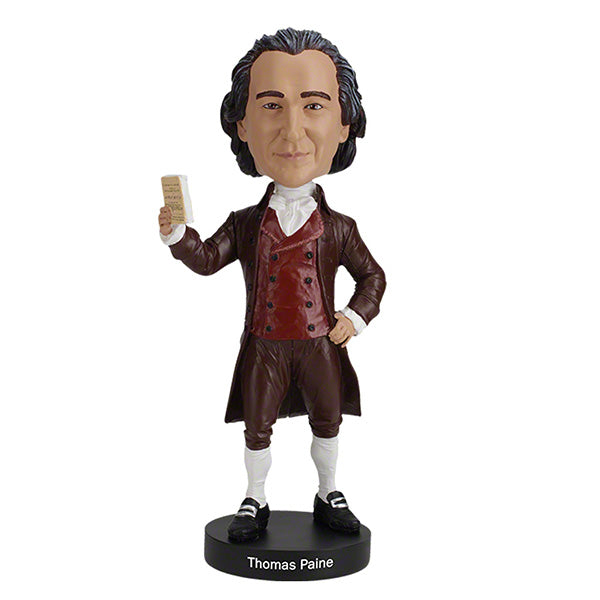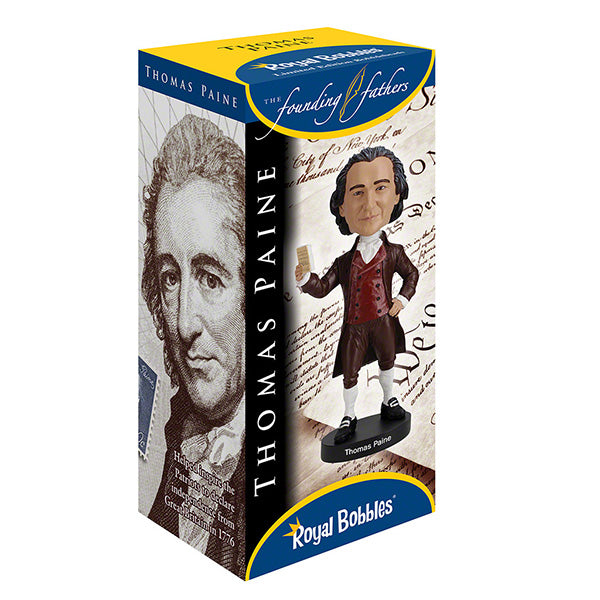Royal Bobbles
Thomas Paine V2 Bobblehead
Thomas Paine V2 Bobblehead
| Minimum Cart Quantity | Wholesale Price |
|---|
Couldn't load pickup availability
Thomas Paine was an author, pamphleteer, radical, inventor, intellectual revolutionary, and one of the Founding Fathers of the United States. Born in England on January 29, 1737, Paine’s early life was riddled with struggles. At the age of thirteen, Paine was apprenticed to his father as a corset maker. After completing his apprenticeship, Paine worked as a privateer, tax collector, school teacher, and tobacco shop owner.
After his business failed, Paine sold his possessions to avoid debtor’s prison and moved to London where he was introduced to Benjamin Franklin. With Franklin’s encouragement and a letter of recommendation, Paine emigrated to America in 1774. In Philadelphia, Paine quickly found work as an editor of the Pennsylvania Magazine. Paine grew the magazine’s readership by writing essays and articles attacking slavery and arguing for worker rights, and appealing to working-class Americans.
Paine’s January, 1776 publication of the pamphlet, “Common Sense,” became a major turning point in the argument for independence. Using plain and persuasive language, Paine argued for the separation of the American colonies from British rule. Paine attacked the notion of the monarchy and hereditary rule, advocating for representative government to protect the rights of citizens. His pamphlet, widely distributed and read publicly, dramatically increased support for American independence.
During the brutal winter of 1776, Paine wrote a series of essays called “The American Crisis.” These essays bolstered the spirits of American soldiers and civilians, providing them the hope and determination to persevere. To inspire his beleaguered soldiers, George Washington had the first Crisis essay read to them, which began with, “These are the times that try men’s souls.”
Paine’s commitment to the principles of liberty led him to Europe in the early 1790’s where he became involved in the French Revolution. His 1791 publication of Rights of Man defended the ideals of the French Revolution and challenged the French monarchy. His support for the French revolutionaries led to his imprisonment. After narrowly escaping execution, Paine’s release was facilitated by the U.S. Minister to France, James Monroe.
Share





